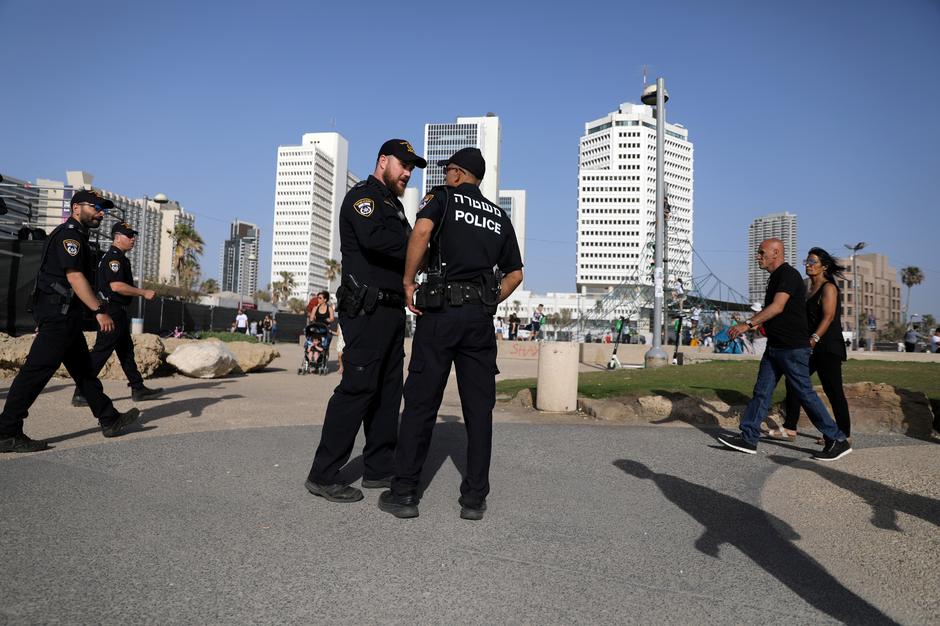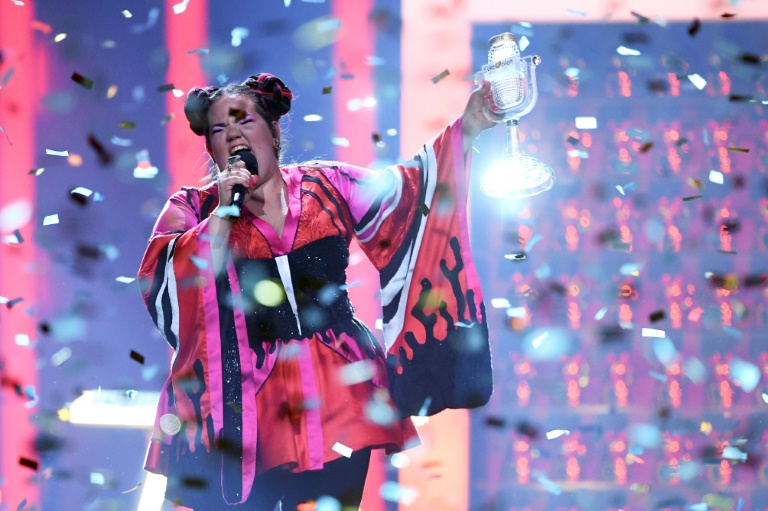For Fayrouz Karawya, “Singing is a challenge, not mere entertainment.”
A psychiatrist, with a diploma from the Institute of Arabic Music in 1994 in vocal/oriental singing and the lute, she has created a genre which reflects the daily rituals of young Egyptians within the world of fusion music. Her themes tackle relationships with all their complications and deviate from the cliché of longing and mourning of lovers.
The Coffee Song, first introduced to her audience in 2006, by young poet Ahmed Haddad reveals that frequent state of confusion that befalls lovers who haven’t declared their feelings. ‘Who shares with you your morning coffee? Talks to you till morning? Who other than me can see daylight amidst your darkest night?’
Her latest song, My Ideal Hero, by poet Omar Taher reflects real life heroes who double park, are never on time and are hardly ideal. “The audience ought to interact with the songs,” Karawya explains, adding that such lyrics and music are the main features of her project: “To discuss issues that are overlooked, to be the girls’ voice,” she insists.
Writing her own lyrics and composing some of the music, Karawya is among a small yet growing trend of young Egyptian artists. “At one point, when the vision of my art-project became more cleare, I found difficulty in conveying my thoughts to someone else.” Just like with the digital cinema, she argues, music–thanks to modern technology–can be easily produced and re-cycled over the internet without the need to be introduced by famous artists in the commercial field.
Karawya’s writing skills are not limited to lyrics. In 2006 she was awarded The Script Golden Eagle Prize by Rotterdam’s Arab Film Festival for writing the script for the short film Sabah el-Fol, based on Italian playwright Dario Fo’s text Rise and Shine. Karawya’s artistic notions were first exhibited in 2001 when she sang the soundtrack of Magdi Ahmed Ali’s film Asrar Al-Banat (Girls’ Secrets). In 2004 she joined the Misaharaty Independent Theater Group as an assistant director, a music editor and a leading singer. She performed in three plays: “Sehraya,” “Hakawi el-Haramlek,” and “Helw Masr.” At the same time she joined the Creativity Center at the Cairo Opera House where she worked as an executive director and music editor on the play King Lear.
A master’s candidate at the American University in Cairo, Karawya’s studies explore socio-political influences on music and have helped her assess the status-quo. Due to numerous media channels, there has been an inevitable quantitative expansion of the music business. Quality on the other hand is limited to a few radical voices, which can use the internet as an alternative media. “Consequently the age of one super star is long gone, instead there are different genres and a different audience,” Karawya says.
Though admitting that her themes deviate from the main stream, Karawya does not fall in the category of underground music because, like all other singers, she is not completely freed from the need for a producer. “Underground music by definition is different, skeptical and quite radical. They have their own–independent–CDs, media channels and artistic project. However in Egypt, if you watch all of the acclaimed underground bands, you can barely find any that represent songs that are not featured on television or commercially,” she notes.
Though the commercialization of art might allow a wider platform, Karawya believes that in Egypt it is quite narrow. “Just like we adopt a standard form of super star, food, and dress code, we hardly accept anything new.” Such is the case with local singers as they are highly affected by social trends, she adds, explaining that, with the exception of prominent star Mohamed Mounir, who managed to master a smart formula that afforded him big production while preserving his authenticity, its very difficult for independent creative artists to get the best of both worlds. Being the leader of an independent band is not easy. Not being able to secure fixed salaries causes instability among musicians, who consequently join several bands at the same time. Hence the inevitable need to target the market on one’s own terms. Karawya views lots of dramatic angels that could make her songs perfect candidates for video-clips. Yet the marketing problem remains .
“The idea of marketing abroad is to make anything marketable; on the contrary most Egyptian producers find it easier to lean toward main stream songs to ensure success. Ironically, very few such songs are successful, so why keep producing them when there could be other alternatives? Why keep limiting the market choices?”
Yet Karawya is optimistic and continues to address those who alienated by mainstream music who are looking for a matching genre.
“My bet is on my audience,” she says.




